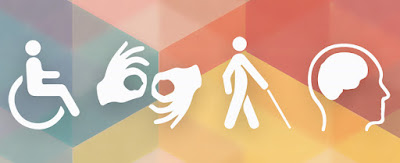Self-care is an important aspect of overall well-being, and this applies to individuals on the autism spectrum as well. However, self-care activities for people with autism may look different than for those without autism, as they may have unique needs and preferences.
One of the key things that people with autism may benefit
from is a consistent daily routine. Having a predictable schedule can help to
reduce stress and anxiety, and make it easier for them to manage their day.
This routine should include time for self-care activities, such as exercise,
meditation, or mindfulness techniques. It's important to be flexible and adjust
the routine as needed, but overall consistency is key. They can also opt of
assistance with self care activities, to help themselves in daily life.
People with autism may also benefit from setting aside time
for activities that they enjoy and find calming. For some individuals, this may
be playing with a favorite toy, listening to music, or engaging in a hobby.
Finding activities that bring them pleasure and relaxation is an important
aspect of self-care.
Another aspect of self-care for people with autism is
incorporating sensory-friendly activities into their routine. People with
autism may have sensory sensitivities, such as being over-sensitive to bright
lights or loud noises. Sensory-friendly activities, such as deep pressure
therapy, aromatherapy, or listening to white noise, can help to reduce stress
and anxiety and create a sense of calm.
Building a support system of friends, family, and
professionals who understand their unique needs and can provide emotional
support is also important for self-care for people with autism. This support
system can help them to navigate difficult times and provide a sense of
belonging and connection.
It's important to set boundaries and learn to say no to
people or activities that may be overwhelming. People with autism may have
difficulty with social interactions and may find certain situations to be overstimulating.
Setting boundaries and learning to communicate their needs is an important
aspect of self-care.
Finding a form of communication that works for them, such as
PECS, sign language, or a communication device, and practice it regularly is
crucial for people with autism. Communication is a fundamental aspect of human
interaction and people with autism may have difficulty expressing themselves
and may be misunderstood. Finding a form of communication that works for them
can help them to be better understood and to express their needs and
preferences more effectively.
Finally, seeking professional help such as counseling or
therapy for emotional or mental health concerns is an important aspect of
self-care for people with autism. People with autism may have difficulty with
social interactions and may be at risk of depression or anxiety. Counseling or
therapy can provide a safe space for them to talk about their feelings and to
work through any challenges they may be facing. You can get the best assistancewith self care activities in Australia, offered by top-notch professionals.
In conclusion, self-care is an ongoing process and it may
take time to find what works best for an individual with autism. It's also
important to remember that self-care is not one size fit all, different people
have different needs, and what works for one person may not work for another.
It's important to involve the person with autism in the process of identifying
what self-care activities are best for them, and respect their choices and
preferences. With the right self-care strategies in place, people with autism
can live fulfilling lives and thrive.








